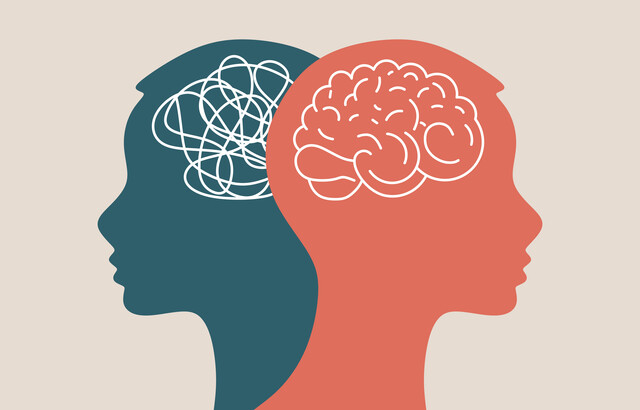Online Class: Introduction to Counseling Psychology

-
14Lessons
-
34Exams &
Assignments -
9Hours
average time -
0.9CEUs
Course Description
Introduction to Counseling: Your Path to Becoming a Catalyst for Change
In a world where emotional well-being is often overshadowed by life's relentless demands, there is an urgent need for compassionate individuals who can bring light to those navigating the darkness. Counseling isn't just a career-it's a profound calling, a journey into the human experience, and an opportunity to create meaningful change in the lives of others. If you've ever felt a pull to make a difference, to listen, to guide, and to heal, this course is your invitation to step into that purpose.
Introduction to Counseling is more than an online course-it's an experience designed to inspire, educate, and transform. From the very first lesson, you'll be immersed in the world of counseling, uncovering its unique challenges and remarkable rewards. But this isn't just about acquiring knowledge; it's about discovering your potential as a future counselor and crafting the skills that will empower you to help others find clarity, strength, and hope.
What Makes This Course Exceptional?
Unlike traditional courses that skim the surface, Introduction to Counseling takes you on a deep and engaging exploration of the profession. Imagine walking alongside seasoned counselors, hearing their stories, and witnessing the profound impact they have on their clients' lives. Through this course, you'll gain insider insights into what it truly means to be a counselor-both the triumphs and the trials.
You'll develop not just an understanding of psychological principles but the practical tools and compassionate mindset that make counseling transformative. Learn how to truly connect with people, even in their most vulnerable moments. Master techniques to foster trust, empathy, and meaningful dialogue. Explore the ethical dilemmas and complexities of real-world practice with guidance from experts who've been there.
A Journey of Self-Discovery
This course isn't just about preparing you for a career-it's about unlocking a deeper understanding of yourself and others. You'll reflect on your own strengths, biases, and experiences, discovering how they shape your ability to connect and counsel. Whether you're starting a new professional journey or simply seeking to enhance your interpersonal skills, this course will challenge and inspire you to grow in ways you never thought possible.
The Impact Awaits You
By the end of this course, you'll be equipped with a solid foundation in counseling principles, ready to pursue further education or apply these transformative skills in your personal and professional life. More importantly, you'll be on the path to becoming a beacon of support and guidance in a world that desperately needs it.
This is your moment. Step into a future filled with purpose and possibility. Enroll in Introduction to Counseling today and begin your journey toward changing lives-starting with your own.
Course Lessons
Lesson 1. The Multifaceted World of Counseling Careers
 Lesson 1 Video
Lesson 1 Video Review Practice Worksheet: Lesson-1-WordSearch-8072.pdf
Review Practice Worksheet: Lesson-1-WordSearch-8072.pdf Lesson discussions: Reasons for Taking this Course
Lesson discussions: Reasons for Taking this Course Complete Assignment: Why this Course?
Complete Assignment: Why this Course? Assessment: Lesson 1 What is a Counselor
Assessment: Lesson 1 What is a Counselor Assessment: Lesson 1 Review Exam
Assessment: Lesson 1 Review Exam
Lesson 2. The Power of Empathy in Client Transformation
 Lesson 2 Video
Lesson 2 Video Review Practice Worksheet: Lesson-2-WordSearch-8074.pdf
Review Practice Worksheet: Lesson-2-WordSearch-8074.pdf Assessment: Lesson 2 Developing Basic Counseling Skills
Assessment: Lesson 2 Developing Basic Counseling Skills Assessment: Lesson 2 Review Exam
Assessment: Lesson 2 Review Exam
Lesson 3. Counseling as a Vocation: Cultivating Empathy and Skill
 Lesson 3 Video
Lesson 3 Video Review Practice Worksheet: Lesson-3-WordSearch-8076.pdf
Review Practice Worksheet: Lesson-3-WordSearch-8076.pdf Assessment: Lesson 3 Are You A Candidate For A Counseling Career?
Assessment: Lesson 3 Are You A Candidate For A Counseling Career? Assessment: Lesson 3 Review Exam
Assessment: Lesson 3 Review Exam
Lesson 4. Modern Workplace Dynamics: Counseling at the Core
 Lesson 4 Video
Lesson 4 Video Review Practice Worksheet: Lesson-4-WordSearch-8078.pdf
Review Practice Worksheet: Lesson-4-WordSearch-8078.pdf Assessment: Lesson 4 Counseling In Private Sector
Assessment: Lesson 4 Counseling In Private Sector Assessment: Lesson 4 Review Exam
Assessment: Lesson 4 Review Exam
Lesson 5. Harnessing Role Playing for Transformative Counseling
 Lesson 5 Video
Lesson 5 Video Review Practice Worksheet: Lesson-5-WordSearch-8080.pdf
Review Practice Worksheet: Lesson-5-WordSearch-8080.pdf Assessment: Lesson 5 Mastering Counseling Techniques
Assessment: Lesson 5 Mastering Counseling Techniques Assessment: Lesson 5 Review Exam
Assessment: Lesson 5 Review Exam
Lesson 6. Legal and Ethical Standards in Mental Health Counseling
 Lesson 6 Video
Lesson 6 Video Review Practice Worksheet: Lesson-6-WordSearch-8082.pdf
Review Practice Worksheet: Lesson-6-WordSearch-8082.pdf Assessment: Lesson 6 Legal and Ethical Issues
Assessment: Lesson 6 Legal and Ethical Issues Assessment: Lesson 6 Review Exam
Assessment: Lesson 6 Review Exam
Lesson 7. Understanding Counseling Specialties
 Lesson 7 Video
Lesson 7 Video Review Practice Worksheet: Lesson-7-WordSearch-8084.pdf
Review Practice Worksheet: Lesson-7-WordSearch-8084.pdf Complete: Lesson 7 Activity
Complete: Lesson 7 Activity Assessment: Lesson 7 Popular Counseling Specialties
Assessment: Lesson 7 Popular Counseling Specialties Assessment: Lesson 7 Review Exam
Assessment: Lesson 7 Review Exam
Lesson 8. Finding Self-Discovery Through Counseling
 Lesson 8 Video
Lesson 8 Video Review Practice Worksheet: Lesson-8-WordSearch-8086.pdf
Review Practice Worksheet: Lesson-8-WordSearch-8086.pdf Complete: Lesson 8 Activity
Complete: Lesson 8 Activity Assessment: Lesson 8 Counseling Arrangements
Assessment: Lesson 8 Counseling Arrangements Assessment: Lesson 8 Review Exam
Assessment: Lesson 8 Review Exam
Lesson 9. Strategies for Counselor Self-Care
 Lesson 9 Video
Lesson 9 Video Review 2 Practice Worksheets
Review 2 Practice Worksheets Complete: Lesson 9 Activity
Complete: Lesson 9 Activity Assessment: Lesson 9 Counselor Self-Care Strategies
Assessment: Lesson 9 Counselor Self-Care Strategies Assessment: Lesson 9 Review Exam
Assessment: Lesson 9 Review Exam
Lesson 10. Empowering Change: The Essential Role of Social Workers
 Lesson 10 Video
Lesson 10 Video Review Practice Worksheet: Lesson-10-WordSearch-8090.pdf
Review Practice Worksheet: Lesson-10-WordSearch-8090.pdf Assessment: Lesson 10 The Social Worker
Assessment: Lesson 10 The Social Worker Assessment: Lesson 10 Review Exam
Assessment: Lesson 10 Review Exam
Lesson 11. Counseling in Institutional Environments: Bridging Gaps and Empowering Change
 Lesson 11 Video
Lesson 11 Video Review Practice Worksheet: Lesson-11-WordSearch-8092.pdf
Review Practice Worksheet: Lesson-11-WordSearch-8092.pdf Assessment: Lesson 11 Counseling In Diverse Environments
Assessment: Lesson 11 Counseling In Diverse Environments Assessment: Lesson 11 Review Exam
Assessment: Lesson 11 Review Exam
Lesson 12. Business Aspects of Counseling
 Lesson 12 Video
Lesson 12 Video Review Practice Worksheet: Lesson-12-WordSearch-8094.pdf
Review Practice Worksheet: Lesson-12-WordSearch-8094.pdf Assessment: Lesson 12 Business Aspects of Counseling
Assessment: Lesson 12 Business Aspects of Counseling Assessment: Lesson 12 Review Exam
Assessment: Lesson 12 Review Exam
Lesson 13. Counselor Conduct: Balancing Ethics and Responsibility
 Lesson 13 Video
Lesson 13 Video Review Practice Worksheet: Lesson-13-WordSearch-8096.pdf
Review Practice Worksheet: Lesson-13-WordSearch-8096.pdf Complete: Lesson 13 Activity
Complete: Lesson 13 Activity Assessment: Lesson 13 Record Keeping And Ethical Guidelines
Assessment: Lesson 13 Record Keeping And Ethical Guidelines Assessment: Lesson 13 Review Exam
Assessment: Lesson 13 Review Exam
Lesson 14. Empowering Connections: Mastery of Counseling-Based Communication
 Lesson 14 Video
Lesson 14 Video Review Practice Worksheet: Lesson-14-WordSearch-8098.pdf
Review Practice Worksheet: Lesson-14-WordSearch-8098.pdf Lesson discussions: End of Course Poll; Course Comments
Lesson discussions: End of Course Poll; Course Comments Assessment: Lesson 14 Counseling Based Communication Skills
Assessment: Lesson 14 Counseling Based Communication Skills Assessment: The Final Exam
Assessment: The Final Exam Assessment: Lesson 14 Review Exam
Assessment: Lesson 14 Review Exam
Learning Outcomes
- Define the role of a counselor by identifying key responsibilities and historical developments influencing modern practices.
- Demonstrate understanding of diverse counseling environments by describing various settings and the specific functions counselors perform within each.
- Analyze and describe the ethical considerations and professionalism necessary for maintaining clear boundaries in a therapeutic relationship, ensuring client safety and trust.
- Identify and demonstrate the use of at least three basic counseling skills, such as active listening, empathy, and open-ended questioning, in a simulated counseling scenario.
- Define the educational pathways and certification requirements necessary for pursuing a career in counseling in your state.
- Illustrate the personal and professional qualities integral to becoming an effective counselor, including empathy, ethical awareness, and emotional resilience.
- Demonstrate the ability to identify and implement effective counseling strategies to reduce digital interruptions and enhance workplace productivity.
- Recognize and analyze the impact of workplace counseling on employee health, stress management, and productivity through case study evaluations.
- Demonstrate the ability to utilize role-playing techniques to enhance client-counselor communication effectiveness by simulating real-life counseling scenarios.
- Describe how didactic questioning can be employed to facilitate deeper client self-awareness and problem-solving during counseling sessions.
- Define the ethical and legal boundaries of confidentiality in counseling by identifying situations where disclosure is warranted according to professional codes.
- Demonstrate understanding of the evolving role of school counselors by analyzing strategies for addressing diverse student needs in contemporary educational settings.
- Define key specialties within counseling and differentiate their unique roles in supporting individuals' mental and emotional well-being.
- Demonstrate mastery of lesson content at levels of 70% or higher.
Additional Course Information

- Document Your Lifelong Learning Achievements
- Earn an Official Certificate Documenting Course Hours and CEUs
- Verify Your Certificate with a Unique Serial Number Online
- View and Share Your Certificate Online or Download/Print as PDF
- Display Your Certificate on Your Resume and Promote Your Achievements Using Social Media

Student Testimonials
- "I found this course was really good and helpful. I found the lesson on ethics to be helpful as I didn't know some of this stuff before. I didn't know how closely related social work and counselling psychology is. It was interesting learning about that." -- Daniel D.
- "I have completed courses with this Instructor previously and would happily undertake his future courses." -- Mary M.
- "This Course was excellent learning experience for me, THANKS." -- Krishan A.
Related Courses
-
 5 hours
0.5 CEUs
Listening Skills
+ More Info
5 hours
0.5 CEUs
Listening Skills
+ More Info
-
 3 hours
0.3 CEUs
Empowerment for Single Parents
+ More Info
3 hours
0.3 CEUs
Empowerment for Single Parents
+ More Info
-
 8 hours
0.8 CEUs
Strategic Planning
+ More Info
8 hours
0.8 CEUs
Strategic Planning
+ More Info
-
 5 hours
0.5 CEUs
Understanding Workers' Compensation
+ More Info
5 hours
0.5 CEUs
Understanding Workers' Compensation
+ More Info
-
 3 hours
0.3 CEUs
Job Performance Appraisals - A How To Guide
+ More Info
3 hours
0.3 CEUs
Job Performance Appraisals - A How To Guide
+ More Info
-
 2 hours
0.2 CEUs
Mindfulness in the Workplace
+ More Info
2 hours
0.2 CEUs
Mindfulness in the Workplace
+ More Info
-
 7 hours
0.7 CEUs
Employment Law Fundamentals
+ More Info
7 hours
0.7 CEUs
Employment Law Fundamentals
+ More Info
-
 8 hours
0.8 CEUs
Decision Making Skills
+ More Info
8 hours
0.8 CEUs
Decision Making Skills
+ More Info
-
 5 hours
0.5 CEUs
Child Safety for Parents
+ More Info
5 hours
0.5 CEUs
Child Safety for Parents
+ More Info
-
 5 hours
0.5 CEUs
Creative Thinking Skills
+ More Info
5 hours
0.5 CEUs
Creative Thinking Skills
+ More Info
-
 6 hours
0.6 CEUs
Workplace Violence: A Guide to Responding and Preventing
+ More Info
6 hours
0.6 CEUs
Workplace Violence: A Guide to Responding and Preventing
+ More Info
-
 5 hours
0.5 CEUs
Basic Parenting Skills
+ More Info
5 hours
0.5 CEUs
Basic Parenting Skills
+ More Info
-
 5 hours
0.5 CEUs
Recruitment and Retention Strategies
+ More Info
5 hours
0.5 CEUs
Recruitment and Retention Strategies
+ More Info
-
 6 hours
0.6 CEUs
Persuasion Techniques
+ More Info
6 hours
0.6 CEUs
Persuasion Techniques
+ More Info
-
 5 hours
0.5 CEUs
Home Safety
+ More Info
5 hours
0.5 CEUs
Home Safety
+ More Info
-
 6 hours
0.6 CEUs
Introduction to Abnormal Psychology
+ More Info
6 hours
0.6 CEUs
Introduction to Abnormal Psychology
+ More Info
-
 6 hours
0.6 CEUs
Delegation Skills
+ More Info
6 hours
0.6 CEUs
Delegation Skills
+ More Info
-
 8 hours
0.8 CEUs
Assertiveness Training
+ More Info
8 hours
0.8 CEUs
Assertiveness Training
+ More Info
-
 6 hours
0.6 CEUs
Confidence Building
+ More Info
6 hours
0.6 CEUs
Confidence Building
+ More Info
-
 8 hours
0.8 CEUs
Human Resources Management
+ More Info
8 hours
0.8 CEUs
Human Resources Management
+ More Info
-
 5 hours
0.5 CEUs
Talent Management for Business
+ More Info
5 hours
0.5 CEUs
Talent Management for Business
+ More Info
-
 5 hours
0.5 CEUs
Lawful Employee Termination
+ More Info
5 hours
0.5 CEUs
Lawful Employee Termination
+ More Info
-
 7 hours
0.7 CEUs
Conflict Resolution
+ More Info
7 hours
0.7 CEUs
Conflict Resolution
+ More Info
-
 7 hours
0.7 CEUs
Collaboration Skills
+ More Info
7 hours
0.7 CEUs
Collaboration Skills
+ More Info
-
 7 hours
0.7 CEUs
Introduction to Child Psychology
+ More Info
7 hours
0.7 CEUs
Introduction to Child Psychology
+ More Info
-
 7 hours
0.7 CEUs
Dreams Unveiled: Navigating Your Nighttime Visions
+ More Info
7 hours
0.7 CEUs
Dreams Unveiled: Navigating Your Nighttime Visions
+ More Info
-
 7 hours
0.7 CEUs
Negotiation Skills
+ More Info
7 hours
0.7 CEUs
Negotiation Skills
+ More Info
-
 11 hours
1.1 CEUs
Mediation 101
+ More Info
11 hours
1.1 CEUs
Mediation 101
+ More Info
-
 5 hours
0.5 CEUs
Workplace Safety
+ More Info
5 hours
0.5 CEUs
Workplace Safety
+ More Info
-
 5 hours
0.5 CEUs
Emotional Intelligence
+ More Info
5 hours
0.5 CEUs
Emotional Intelligence
+ More Info






